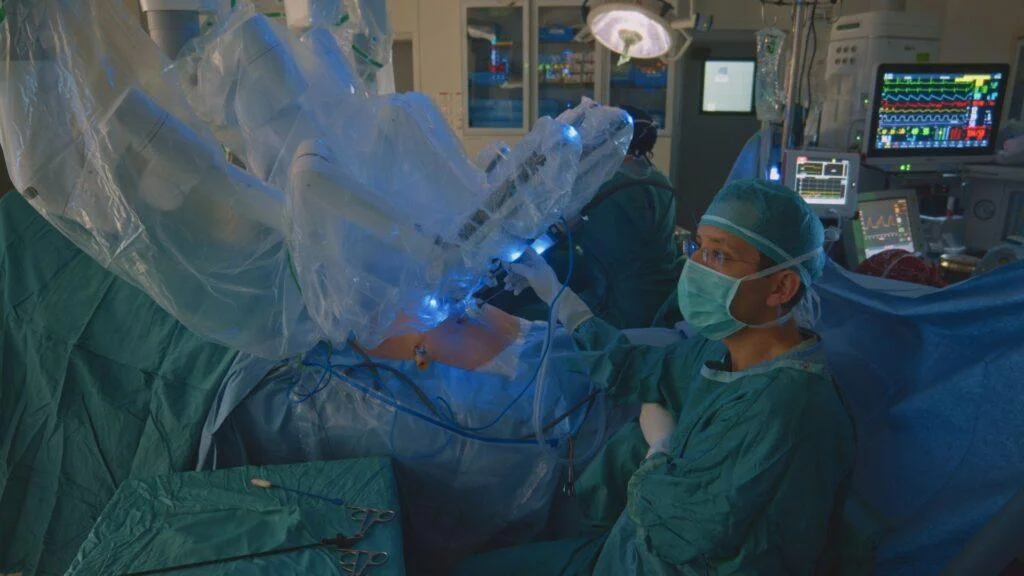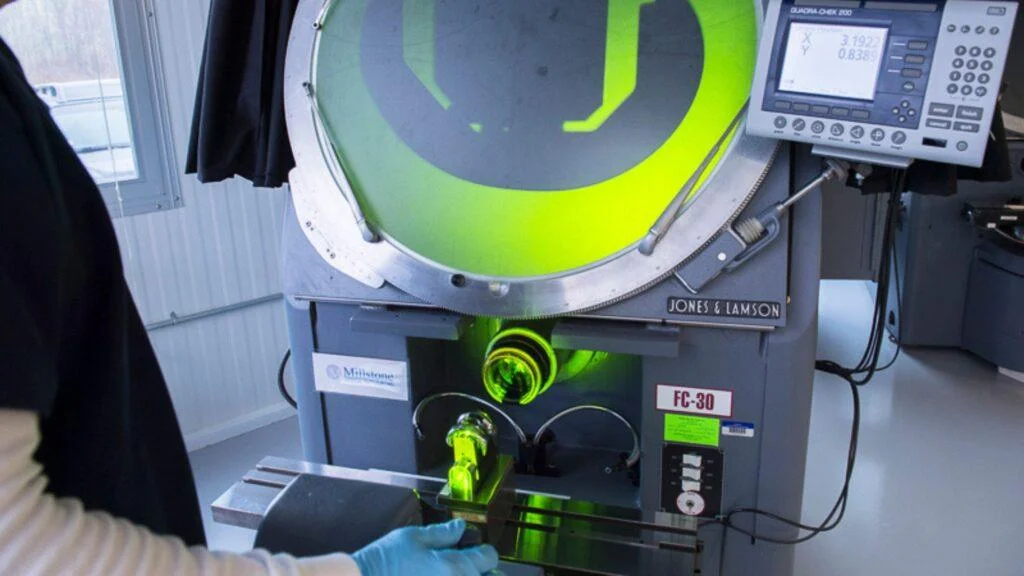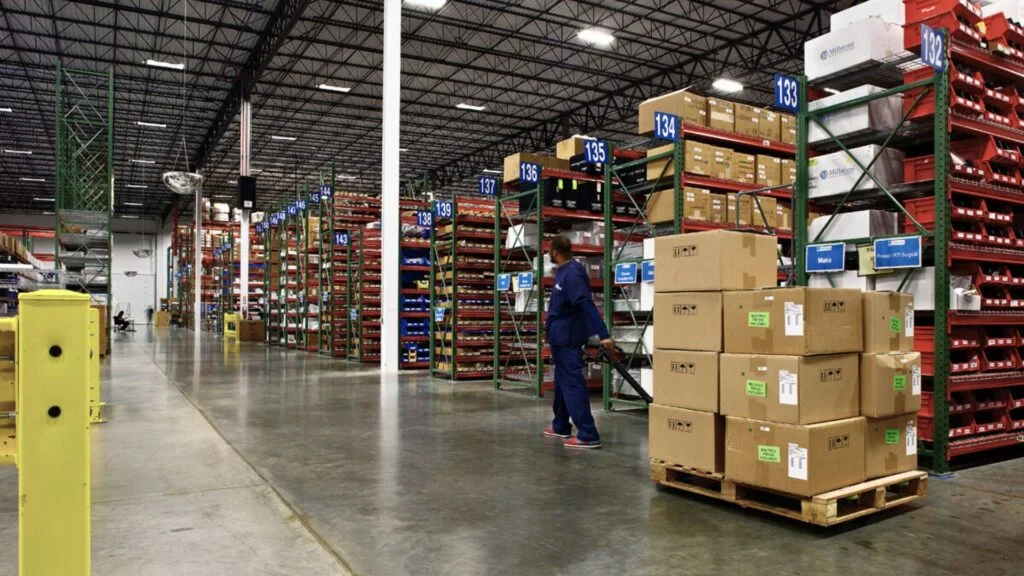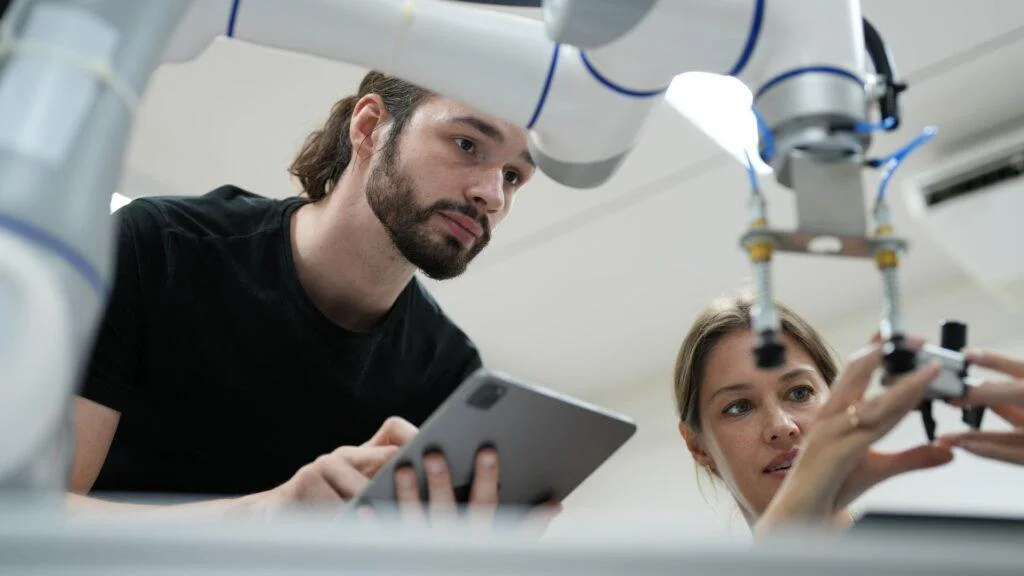Key Takeaways:
- Ensure device integrity with a packaging partner specializing in sterility, integrity, and rigorous testing to meet regulatory compliance standards.
- A partner for in-process testing can improve cost efficiency and reduce lead times, enabling quicker turnaround and faster time-to-market.
- Expanded facilities and scalable services offered by a partner can help OEMs meet spikes in demand quickly and without compromising quality.
- Use a partner to help establish customized assemblies that simplify complex tasks, reduce lead times, and ensure that each device is ideally suited for its intended application.

Robotic-assisted surgeries are revolutionizing the medical field, offering unprecedented precision and control in various complex procedures. However, the success of these surgeries heavily relies on the quality and reliability of the medical devices used. Navigating the complexities of producing these devices can be overwhelming for original equipment manufacturers (OEMs). Expert partnerships become crucial here, ensuring that devices meet the highest safety, efficacy, and performance standards.
Ensuring Device Integrity with Proper Packaging
One primary area where expertise is vital is the packaging of medical devices. Proper packaging ensures that devices remain sterile and free from contaminants, which is essential for patient safety. Sterile packaging solutions in a Class 10,000/ISO7-rated cleanroom maintain the sterility and integrity of surgical instruments from the manufacturing facility to the operating room. This process involves rigorous validation and testing to meet regulatory standards and ensure that devices perform as expected during surgeries.
Key Aspects of Proper Packaging:
- Sterility: Ensuring the device remains uncontaminated throughout its lifecycle.
- Integrity: Maintaining the structural integrity of the sterile barrier and the device during transportation and storage.
- Regulatory Compliance: Meeting stringent regulatory requirements to guarantee safety and efficacy.
Packaging and sterilization expertise play a critical role in robotic-assisted surgeries. Improper packaging can lead to contamination and device failure, jeopardizing patient safety and surgical outcomes.
Comprehensive Testing for Safety and Efficacy
Testing is another critical component in the lifecycle of medical devices for robotic-assisted surgeries. Comprehensive testing services are necessary to verify that each device meets the required safety and performance standards. In-house testing capabilities can significantly reduce lead times, enabling quicker turnaround and faster time-to-market for new devices. These capabilities are critical in the fast-paced medical industry, where timely delivery of high-quality devices can significantly improve patient outcomes.

Benefits of In-House Testing:
- Reduced Lead Times: Quicker testing processes lead to faster product launches.
- Improved Quality Control: Direct oversight ensures all devices meet high standards.
- Cost Efficiency: Eliminating the need for third-party testing reduces expenses.
Quality and expertise in testing directly impact lead times for robotic-assisted surgeries. Delays in testing can postpone product launches, affecting market competitiveness and patient care.
Scalable Manufacturing Solutions for Growing Demands
As the demand for robotic-assisted surgeries grows, so does the need for reliable and scalable manufacturing solutions. Expanded facilities and scalable services are essential to meet increasing demands without compromising quality. This scalability allows emerging and established companies to manage growth effectively, ensuring they can continue providing high-quality devices as their operations expand.

Advantages of Scalable Solutions:
- Capacity to Grow: Facilities that can expand as demand increases.
- Consistent Quality: Maintaining high standards even as production scales up.
- Flexibility: Adapting to market changes and customer needs with ease.
Leveraging capacity for business success in robotic-assisted surgeries means having the infrastructure and expertise to scale operations smoothly and ensure that demand surges do not compromise quality or efficiency.
Adaptable Assemblies for Unique Requirements
Adaptable assemblies are another area where expert partnerships can make a significant impact. Every OEM has unique requirements, and flexible solutions can help meet these specific needs. By adapting assemblies to fit these needs, manufacturers can simplify complex tasks, reduce lead times, and ensure that each device is ideally suited for its intended application. This flexibility is crucial in the ever-evolving medical device industry, where innovation and adaptation are vital to staying ahead.

Key Benefits of Adaptable Assemblies:
- Flexible Solutions: Meeting the specific needs of each OEM.
- Simplified Processes: Reducing complexity in the manufacturing process.
- Faster Time-to-Market: Speeding up the development and deployment of new devices.
Adaptable assemblies ensure that OEMs can meet the specific requirements of robotic-assisted surgeries, reducing complexity and enhancing the precision and reliability of medical devices.
Your Path to Success
Ensure Device Integrity and Compliance:
- Implement sterile packaging solutions using Class 10,000/ISO7-rated cleanroom facilities to maintain device sterility and integrity.
- Conduct rigorous validation processes to meet all regulatory standards, ensuring devices perform as expected during surgeries.
Optimize Testing and Logistics:
- Utilize in-house testing capabilities to reduce lead times, improve quality control, and eliminate the need for third-party testing, resulting in cost efficiency.
- Manage efficient logistics by optimizing inventory management, reducing backorders, and inspecting, repacking, and relabeling devices to maintain quality.
Scale and Customize Solutions for Growth:
- Expand facilities and services to meet increasing demands, ensuring consistent quality and adaptability to market changes.
- Provide tailored solutions to meet specific OEM needs, simplifying processes and reducing lead times for new devices.
Failing to partner with experts in medical device outsourcing can lead to delays, increased costs, and compromised patient safety. These partnerships combine the necessary expertise, resources, and capabilities to ensure that devices meet the highest safety, efficacy, and performance standards. By focusing on quality control, comprehensive testing, efficient logistics, scalable solutions, and adaptable assemblies, these partnerships help manufacturers navigate the complexities of the medical device industry and ultimately contribute to better patient outcomes.
At Millstone, we understand the challenges OEMs face in the robotic-assisted surgery products market. We have successfully launched and supported packaging for four major orthopedic robot platforms and bring a birds-eye view of the growing robotic-assisted surgery products market. Today, we offer post-manufacturing and aftermarket services to more than 50 customers, including some of the top 10 orthopedic companies in the world. We are constantly evolving our processes and services to help OEMs achieve sustainable success. We offer packaging, testing, and logistics —all with an unparalleled focus on quality.
Ready to explore how the right partnership can be a strategic approach to expert sourcing and superior quality? Reach out to learn how we can help.







